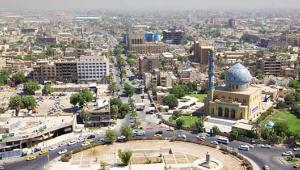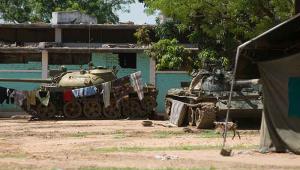The IMF has said the country’s 2019 budget will reverse recent progress in reducing vulnerabilities, with current spending expected to increase by 27% year-on-year.
The fund is encouraging authorities to seize opportunities presented by an improved security situation and higher oil prices in order to implement reforms aimed at ensuring stability.
In an ‘Article 4’ report taking stock of Iraq’s economic performance, the Washington-based organisation has said the country has benefited from an improved security situation and a recovery in oil prices.
Large fiscal and current account surpluses in 2018 – at about 8% and 6% of GDP, respectively – allowed the government to reduce domestic debt and accumulate fiscal buffers, with gross international reserves reaching $65bn by the end of the year.
However, post-war reconstruction and economic recovery have been slow, the IMF said, and non-oil GDP rose by only 0.8% year-on-year in 2018. Overall GDP contracted by about 0.6% as oil production was cut to comply with an agreement by the OPEC+ countries.
The 2019 budget implies a sizeable “fiscal loosening” that will reverse the recent reduction in vulnerabilities, the IMF has said, with current spending set to increase by 27% largely due to higher public sector wages, and revenues dampened by the abolition of non-oil taxes.
As a result, the budget is projected to shift to a deficit of 4% of GDP in 2019, and reserves are projected to decline, falling below adequate levels.
In its assessment, the IMF said that while it was encouraged by how Iraq’s economy had strengthened, the country continued to face “daunting challenges”.
Its report stated: “Social conditions remain harsh, post-war reconstruction progress is slow, development needs are large, and institutional weaknesses are significant.
“Volatile oil prices and a difficult regional and geopolitical environment pose additional difficulties.”
IMF economists are recommending that Iraq’s economic policymakers strengthen fiscal buffers with broader reforms to manage oil revenue more effectively and encourage growth.
Efforts to contain primary spending and boost non-oil revenues are essential for maintaining fiscal and debt sustainability, they argue, and recommend that spending measures should give priority to containing the growth in wage bill and lowering electricity subsidies.
They have stressed the need to strengthen public financial management to ensure public spending is appropriately monitored and to reduce corruption.














